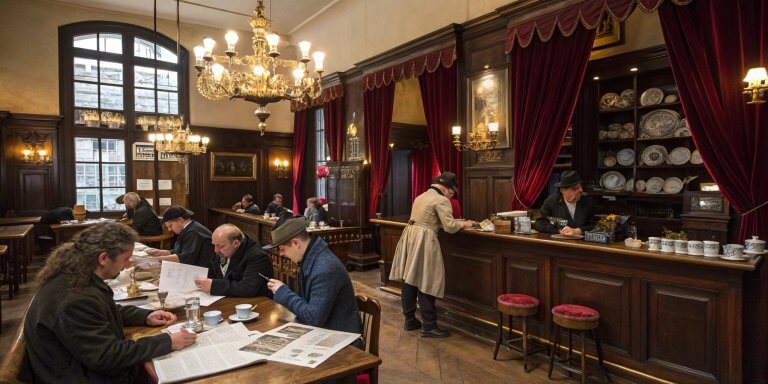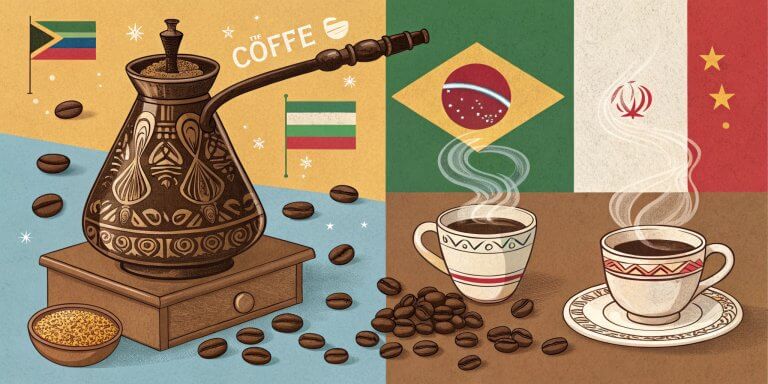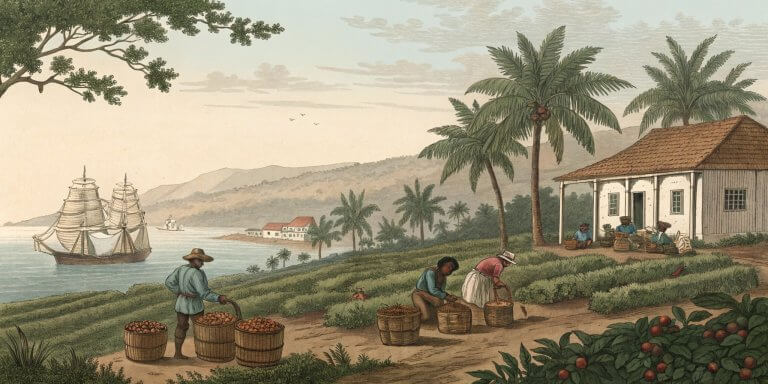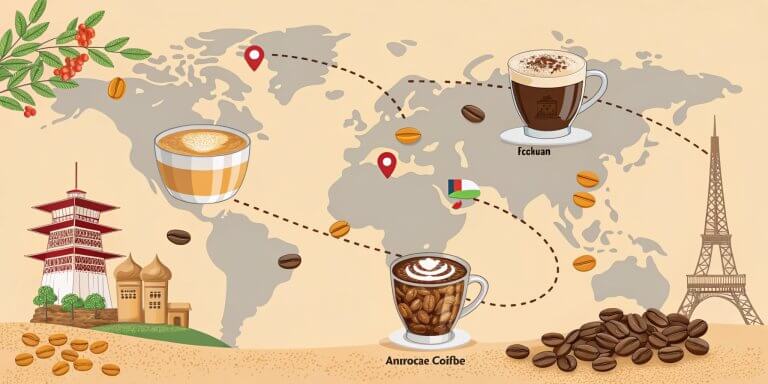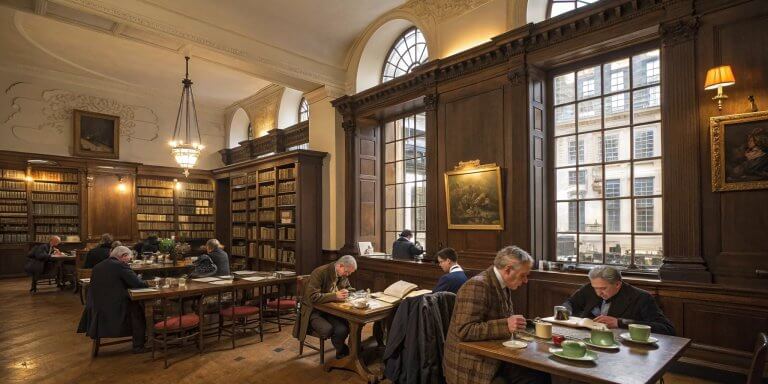Coffee’s Rise in the Arab World: Brewing Traditions & Cultural Impact
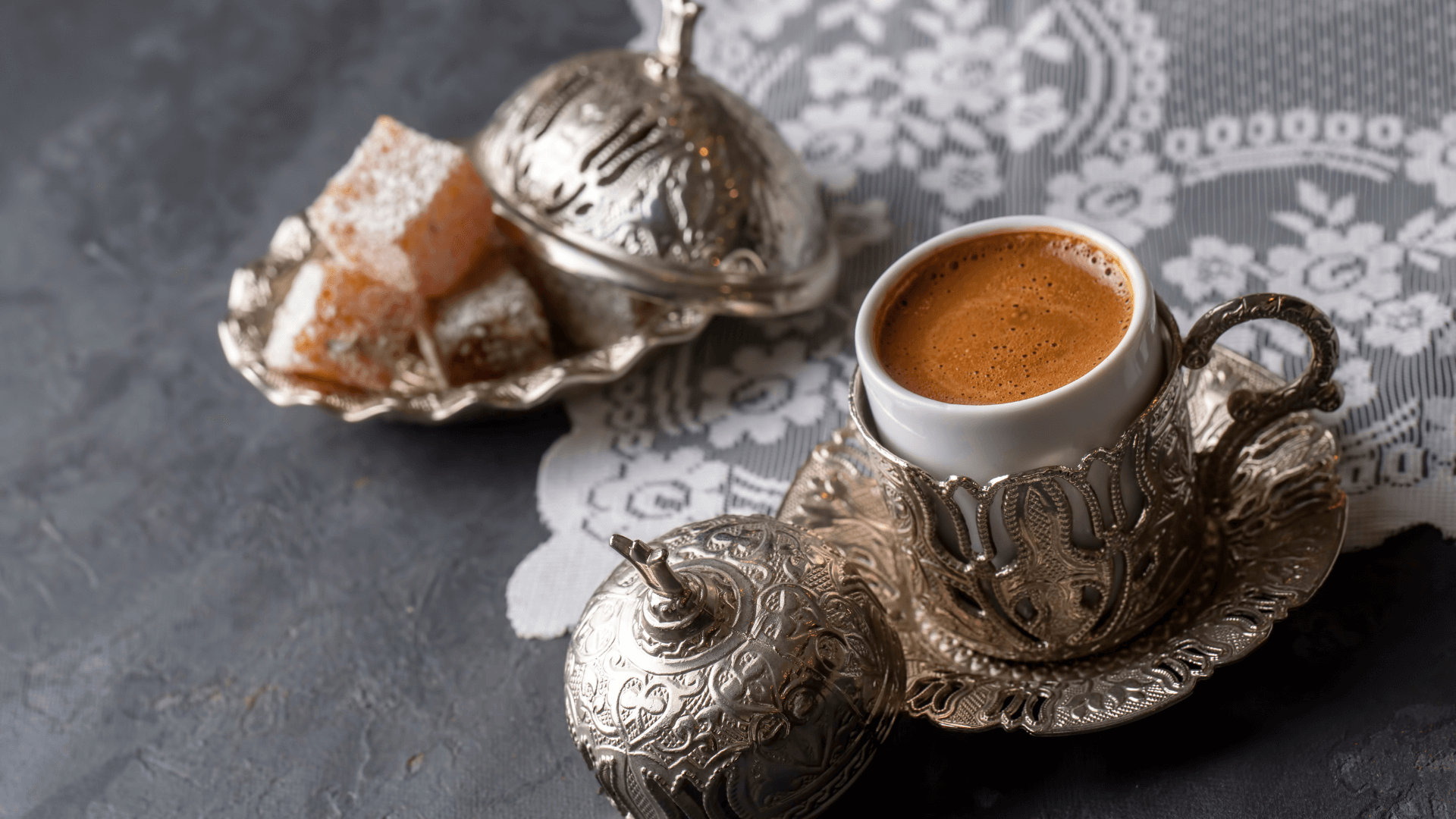
‘Crescent’ refers to the region stretching from the eastern Mediterranean to the Persian Gulf, including Egypt, Saudi Arabia, Yemen, and others. The smell of freshly roasted coffee beans fills the narrow streets of old Cairo. In a small café corner, an older man carefully pours steaming Coffee from a brass pot into tiny cups, just as his father and grandfather did before him. This scene is played out thousands of times daily across the Arab world and tells a story of over 500 years.
Origins and Early History
Long before Coffee became a morning necessity worldwide, it was discovered in the highlands of Ethiopia. The story goes that a young goatherd named Kaldi noticed his goats dancing with unusual energy after eating berries from a particular bush. Curious, he tried the berries himself and felt their energizing effects. While this tale might be more legend than fact, we know that Coffee began its journey in Ethiopia (Topik, 2014, “The World That Trade Created”).
By the 1400s, Coffee had traveled across the Red Sea to Yemen. In the port city of Mocha, Arabs first learned to cultivate coffee plants. They also invented roasting and brewing the beans, creating what we now know as Coffee (Hattox, 2018, “Coffee and Coffeehouses”).
The First Coffee Houses
The first coffeehouses opened in Mecca and Medina around 1511. Picture a room filled with soft cushions, the sound of bubbling water pipes, and the constant chatter of people discussing everything from poetry to politics. These places weren’t just about drinking Coffee – they were like the social media of their time.
“Coffeehouses became the universities of the common man,” writes historian Abd al-Qadir al-Jaziri in his book from 1587. “A place where news spread, deals were made, and ideas were born.”
The Golden Age of Arab Coffee Culture
The Art of Preparation
Making Coffee in the Arab world isn’t just about brewing a drink – it’s an art form. Traditional Arabic Coffee (qahwa) is prepared in a unique pot called a dallah, a long-spouted pot often made of brass or copper. The Coffee is boiled with cardamom and sometimes saffron or cloves. According to a 2023 survey by the Arab Barista Association, 78% of households in Saudi Arabia still use traditional methods to prepare Coffee at least once a week. The brewing process follows specific steps: Roasting the beans until they’re medium brown, Grinding them with a brass mill called a mishmash, Boiling the ground coffee with spices three times, and Serving in small cups called finjans, which are typically small, handleless cups designed for sipping the strong, aromatic brew.
The brewing process follows specific steps:
- Roasting the beans until they’re medium brown
- Grinding them with a brass mill called a mishmash
- Boiling the ground coffee with spices three times
- Serving in small cups called finjans
The Rise of the Coffeehouse
Coffeehouses (called qahwa houses) Were not just places to drink Coffee. They were vibrant hubs of Arab society, where people learned about the world, shared stories, and formed opinions about everything from art to politics. Dr. Nasser Al-Ahmad from Kuwait University explains: “These were the intellectual and social epicenters of their time, fostering lively discussions and the exchange of ideas.”
In 16th century Cairo alone, there were over 600 coffeehouses. Think of them as a mix between today’s cafés, news channels, and social clubs. The famous traveler Ibn Battuta wrote that you could learn more about a city by spending an hour in its coffeehouse than a week walking its streets.
Cultural and Social Impact
Social Customs and Rituals
Coffee in Arab culture is about more than just the drink – it’s about showing hospitality. When guests arrive at an Arab home, Coffee is always served first. The way it’s served follows strict rules:
- The host serves the oldest guest first
- Guests should accept at least one cup
- The cup is only filled one-third full
- Three cups are traditionally offered
A recent study by the Middle Eastern Cultural Heritage Center, a renowned institution dedicated to preserving and promoting the cultural heritage of the region, found that 92% of Arab families still consider coffee ceremonies essential to welcoming guests.
Literary and Artistic Influence
Coffee inspired countless Arab poets and artists. The famous 16th-century poet Abu Bakr al-Adami wrote: “O coffee, you dispel the worries of the great; you point the way to those who have lost it.”
Modern Arab artists continue this tradition. The Dubai Coffee Museum displays over 200 pieces of contemporary art inspired by coffee culture.
Religious and Political Dimensions
Coffee’s journey could have been smoother. In 1511, some religious scholars in Mecca tried to ban it, claiming it was as bad as wine. However, in 1524, Ottoman Sultan Suleiman the Magnificent’s chief religious authority declared Coffee perfectly acceptable for Muslims, ending most religious debates.
The political impact was huge. Many rulers were suspicious of coffeehouses because people gathered there to discuss politics. In 1675, King Charles II of England even tried to ban coffeehouses, calling them “places where the disaffected met.” He failed, just like many Arab rulers who attempted the same thing.
Economic Impact
Today, the Arab world’s coffee industry is not just a cultural tradition, but a significant economic force, worth over $8 billion annually. Yemen’s Mocha coffee remains among the most expensive globally, sometimes selling for over $200 per pound. According to the International Coffee Organization, Arab countries import over 1.2 million bags of Coffee annually, showing how deeply Coffee is woven into daily life and the global economy.
Contemporary Arab Coffee Culture
While Starbucks and other global chains have spread across Arab cities, traditional coffee culture remains strong. Young Arabs are creating fusion cafés that blend conventional brewing methods with modern café culture. The “New Arab Café Survey 2023” shows that 65% of young Arabs prefer cafés that offer traditional and contemporary Coffee.
Conclusion
Coffee’s story in the Arab world continues to evolve. As Leila Hassan, a coffee historian in Beirut, says: “Coffee isn’t just part of our past – it’s part of our future. Every cup we drink connects us to a tradition over 500 years old.”
From humble beginnings in Ethiopia to becoming a global phenomenon, Coffee’s journey through the Arab world changed how people socialize, do business, and share ideas. That’s something worth thinking about next time you enjoy your morning cup.


